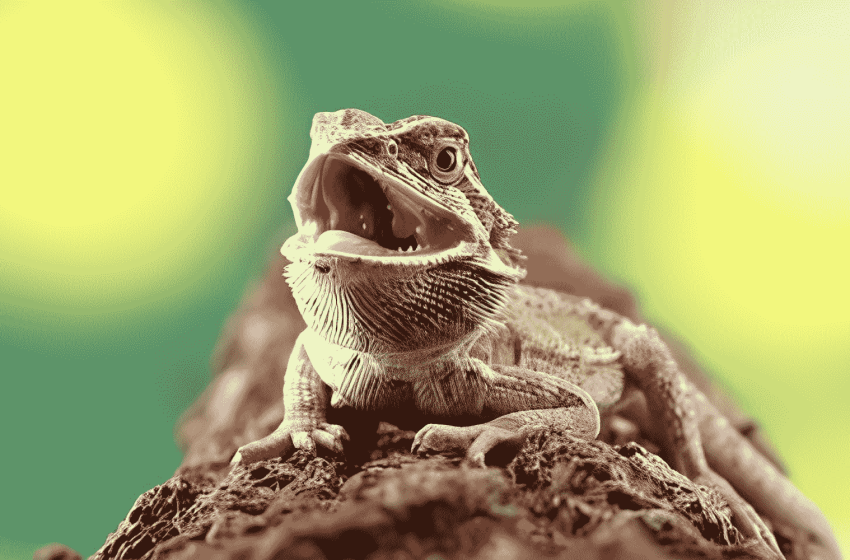Can Bearded Dragons Safely Consume Meat: Unveiling The Truth

In the world of exotic reptiles, bearded dragons have become popular pets due to their unique appearance and easy maintenance. However, when it comes to their diet, there is often confusion about what they can and cannot eat. One particular question that arises is whether bearded dragons can safely consume meat. In this article, we will unveil the truth and provide you with accurate information regarding the dietary needs of these fascinating creatures.
Many reptiles are known to be carnivorous or omnivorous, but what about bearded dragons? Can they handle meat as a part of their regular diet? Understanding their natural diet in the wild is essential to answer this question. Native to Australia, bearded dragons primarily feed on a variety of insects, vegetation, flowers, and fruits. However, this doesn’t necessarily mean that they can’t eat meat.
To provide you with a comprehensive answer, we will delve into the nutritional requirements of bearded dragons, the potential benefits and risks of feeding them meat, and explore alternative dietary options for their optimal health. So, if you’re curious about whether your bearded dragon can safely consume meat, keep reading to discover the truth. https://reptilescare.net/
Understanding The Natural Diet of Bearded Dragons
Bearded dragons, also known as Pogona vitticeps, are native to the arid regions of Australia. In the wild, their diet mainly consists of insects, vegetation, flowers, and fruits. They have a wide range of food choices, including crickets, mealworms, roaches, leafy greens, berries, and even cacti. This varied diet ensures that they receive the necessary nutrients for their growth and overall well-being.
Their natural diet primarily consists of insects, making them insectivorous. Insects are a rich source of protein, which is essential for the growth and development of bearded dragons. Additionally, they also consume vegetation, flowers, and fruits to supplement their diet with vitamins, minerals, and fiber. This combination of protein and plant matter provides a balanced diet for these reptiles in their natural habitat.
Can Bearded Dragons Eat Meat?
Now that we understand the natural diet of bearded dragons, it’s time to address the question of whether they can safely consume meat. The short answer is yes, bearded dragons can eat meat. However, it’s important to note that meat should not be the main component of their diet. While they can tolerate small amounts of meat, their dietary requirements are primarily met through insects, vegetation, and fruits.
Meat, such as lean chicken or fish, can be offered occasionally as a treat or as a source of additional protein. This can be beneficial, especially for growing bearded dragons or those that require an extra protein boost due to illness or injury. However, it should never replace their primary food sources of insects and plants.
Potential Risks Of Feeding Meat to Bearded Dragons
Although bearded dragons can consume meat, there are potential risks associated with incorporating it into their diet. One of the main concerns is the imbalance it may create in their nutritional intake. Meat, especially if fed in excess, can lead to an imbalance in their calcium-to-phosphorus ratio. This can have adverse effects on their bone health and overall growth.
Another risk is the possibility of introducing harmful bacteria or parasites through raw or improperly cooked meat. Bearded dragons have a delicate digestive system, and consuming contaminated meat can lead to digestive issues and infections. It’s crucial to ensure that any meat offered to them is thoroughly cooked, free from seasonings or additives, and sourced from reputable sources.
Alternative Protein Sources For Bearded Dragons
If you’re looking for alternative protein sources for your bearded dragon, there are several options available. In addition to insects, you can consider feeding them a variety of plant-based proteins. Do bearded dragons eat their shed? Some suitable options include tofu, cooked eggs, and commercially available reptile protein pellets. These alternatives can provide the necessary protein while reducing the risks associated with meat consumption.
Tofu, a soy-based product, can be a good protein source for bearded dragons. It is low in fat and can be easily prepared by cutting it into small, bite-sized pieces. Cooked eggs, such as scrambled or hard-boiled, can also be offered as a protein-rich treat. However, it’s important to remember that these plant-based proteins should not replace the primary diet of insects and vegetation.
Commercially available reptile protein pellets can be another alternative to consider. These pellets are specifically formulated to meet the nutritional needs of bearded dragons and other reptiles. They often contain a balance of proteins, vitamins, and minerals, making them a convenient and reliable protein source. However, it’s important to choose high-quality pellets and use them in moderation.
How To Introduce Meat into a Bearded Dragon’s Diet Safely
If you decide to incorporate meat into your bearded dragon’s diet, it’s crucial to do so safely and gradually. Start by offering small amounts of cooked, boneless meat, such as lean chicken or fish. Ensure that the meat is thoroughly cooked to eliminate any potential bacteria or parasites. Cut the meat into small, manageable pieces that are easy for your dragon to consume.
Monitor your bearded dragon’s response to the introduction of meat. Observe their digestion, behavior, and overall health. If you notice any negative reactions or digestive issues, it may be a sign that meat is not suitable for your dragon. In such cases, it’s best to consult with a reptile veterinarian to determine the best course of action for your pet’s dietary needs.
Monitoring and Adjusting a Bearded Dragon’s Diet
Proper monitoring and adjustment of a bearded dragon’s diet are essential to ensure their optimal health and well-being. As mentioned earlier, meat should only be offered in moderation and as a supplement to their primary diet of insects, vegetation, and fruits. Bearded dragons require a balanced intake of proteins, vitamins, minerals, and fiber to thrive.
Regularly assess the variety and quality of the insects and plant matter you offer to your bearded dragon. Ensure that they are receiving a diverse range of insects, such as crickets, mealworms, and roaches, as well as a variety of leafy greens, vegetables, and fruits. This will help ensure that they receive a well-rounded diet that meets their nutritional needs.
Conclusion
In conclusion, bearded dragons can safely consume meat as part of their diet, but it should not be their primary food source. Their natural diet consists of insects, vegetation, flowers, and fruits, which provide a balanced intake of proteins, vitamins, minerals, and fiber. Meat can be offered occasionally as a treat or as a supplemental source of protein.
However, it’s important to be mindful of the potential risks associated with meat consumption, such as nutritional imbalances and the introduction of harmful bacteria or parasites. By offering alternative protein sources, such as tofu, cooked eggs, or commercially available reptile protein pellets, you can provide your bearded dragon with the necessary nutrients while minimizing these risks.
Remember to introduce meat gradually, monitor your dragon’s response, and make adjustments to their diet as needed. By providing a well-rounded diet that meets their nutritional needs, you can ensure the health and happiness of your bearded dragon companion.




